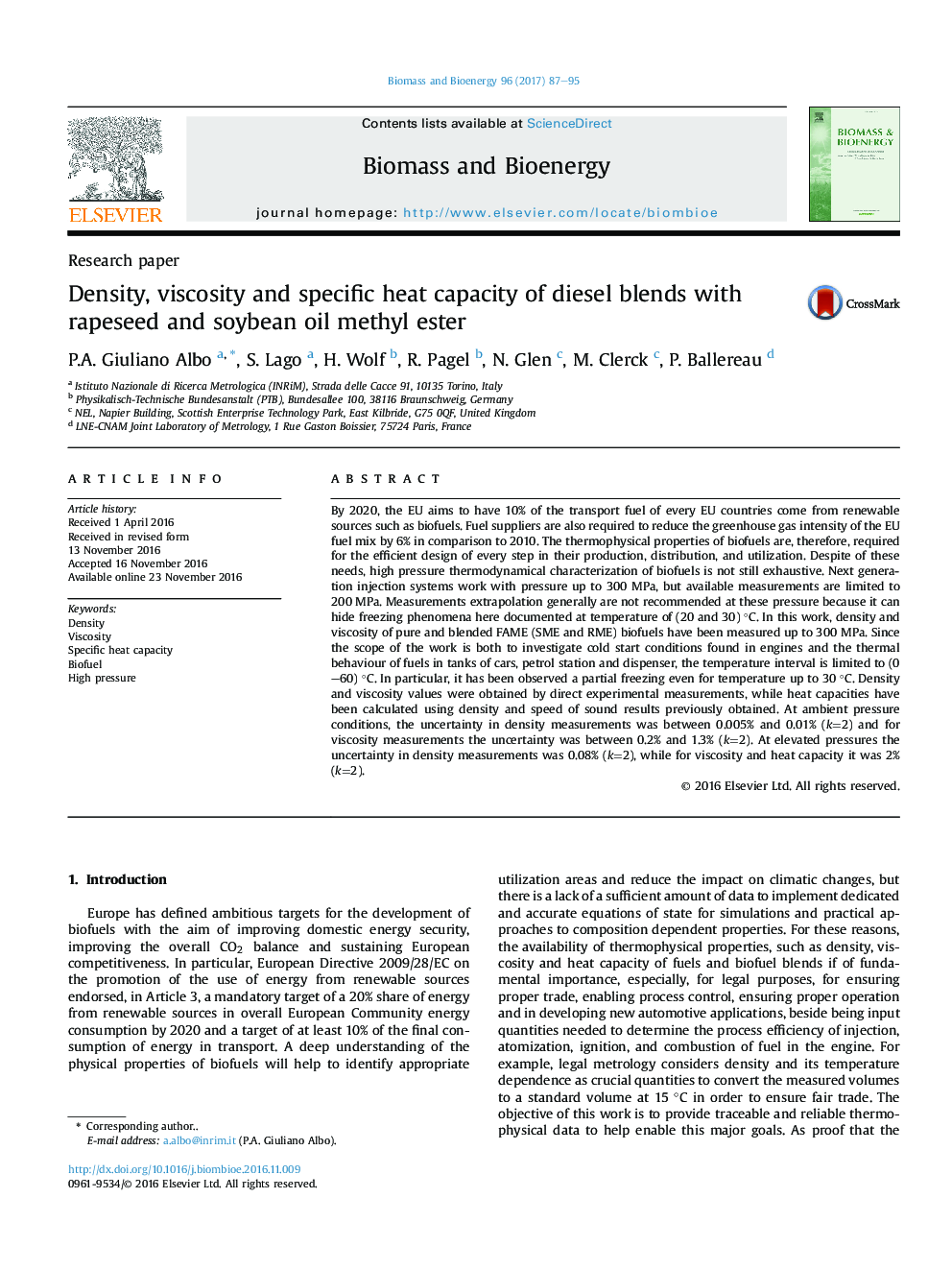| کد مقاله | کد نشریه | سال انتشار | مقاله انگلیسی | نسخه تمام متن |
|---|---|---|---|---|
| 4996406 | 1459797 | 2017 | 9 صفحه PDF | دانلود رایگان |
- Measured samples: diesel, rapeseed and soybean oil methyl esters (pure and blends).
- Density and viscosity of biofuels have been measured up to 300 MPa.
- Results are obtained for temperature up to 60 °C to study cold start conditions.
- Heat capacity has been calculated by literature density and speed of sound results.
- Freezing phenomena were observed for temperature up to 30 °C from 135 MPa.
By 2020, the EU aims to have 10% of the transport fuel of every EU countries come from renewable sources such as biofuels. Fuel suppliers are also required to reduce the greenhouse gas intensity of the EU fuel mix by 6% in comparison to 2010. The thermophysical properties of biofuels are, therefore, required for the efficient design of every step in their production, distribution, and utilization. Despite of these needs, high pressure thermodynamical characterization of biofuels is not still exhaustive. Next generation injection systems work with pressure up to 300 MPa, but available measurements are limited to 200 MPa. Measurements extrapolation generally are not recommended at these pressure because it can hide freezing phenomena here documented at temperature of (20 and 30) °C. In this work, density and viscosity of pure and blended FAME (SME and RME) biofuels have been measured up to 300 MPa. Since the scope of the work is both to investigate cold start conditions found in engines and the thermal behaviour of fuels in tanks of cars, petrol station and dispenser, the temperature interval is limited to (0-60) °C. In particular, it has been observed a partial freezing even for temperature up to 30 °C. Density and viscosity values were obtained by direct experimental measurements, while heat capacities have been calculated using density and speed of sound results previously obtained. At ambient pressure conditions, the uncertainty in density measurements was between 0.005% and 0.01% (k=2) and for viscosity measurements the uncertainty was between 0.2% and 1.3% (k=2). At elevated pressures the uncertainty in density measurements was 0.08% (k=2), while for viscosity and heat capacity it was 2% (k=2).
Journal: Biomass and Bioenergy - Volume 96, January 2017, Pages 87-95
